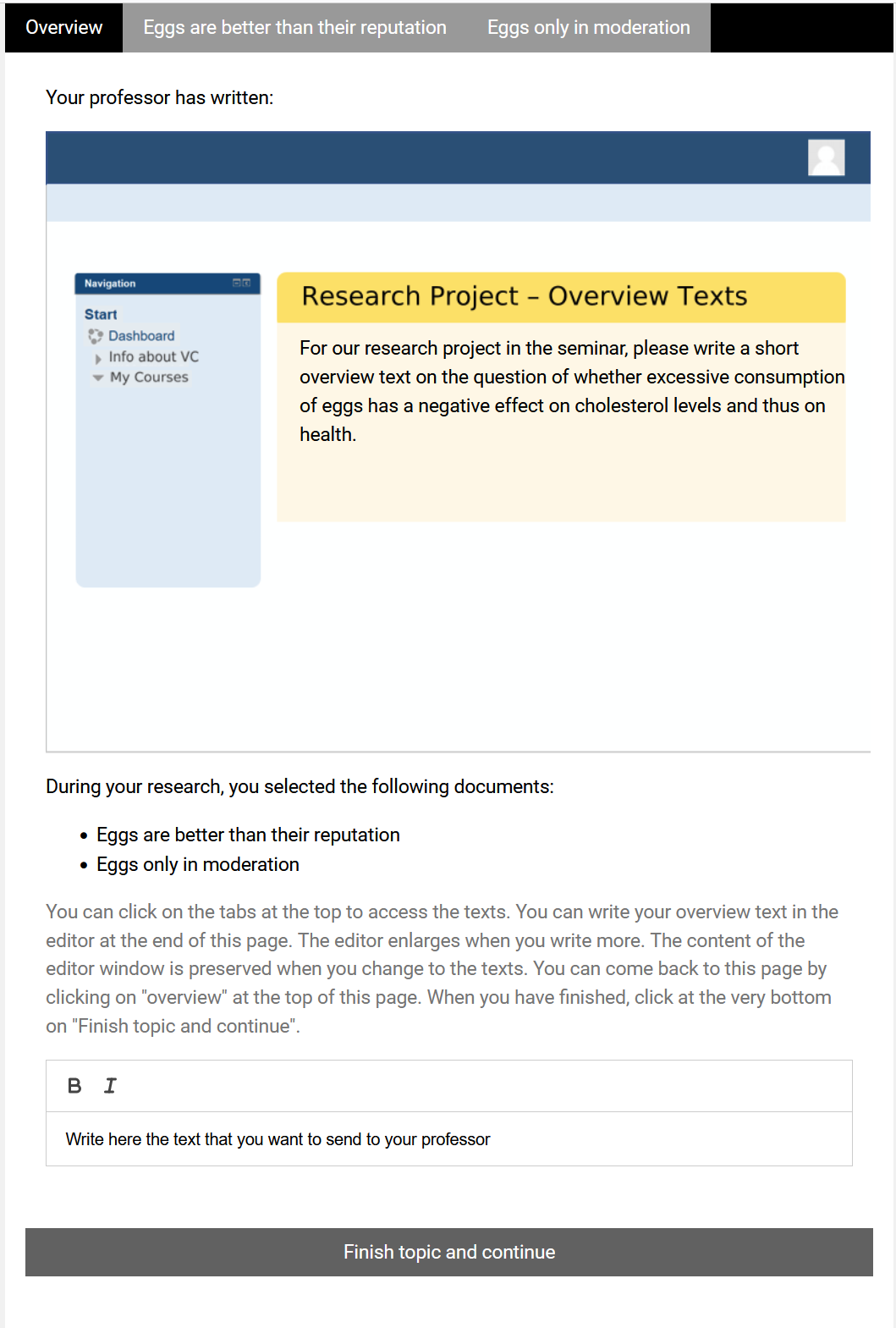Plain Language Summaries
We read multiple documents on the same topic in different contexts. For university students, this could be reading for university or for personal situations. At the same time, multiple documents on the same topic can also contradict each other, which makes dealing with multiple documents challenging.
This study examined whether it makes a difference to students whether they read and summarize consistent or conflicting documents on popular science topics for a university context or for a personal context. Additionally, we examined whether attitudes toward science play a role in this process. Briefly summarized: For a university context, students work out the state of affairs better from both a content and a formal perspective. Attitudes toward science had little effect.

It is already known that conflicting information poses a challenge when reading multiple documents on the same topic. Conversely, however, a discrepancy also helps to better represent multiple documents, namely to link content and source. Ideally, one builds an understanding of who is saying what.
What is unclear to a large extent so far is what effect context has on reading and processing multiple documents. There are studies that find differences for whether one reads for school or for leisure, but so much varies between these two purposes that it is difficult to apply these findings to the question of whether the reception of (popular) science topics differs depending on whether students are reading and writing a text for university or for personal reasons for themselves.
Moreover, because attitudes toward science might also be important when reading about popular science topics, one goal of the study was to examine the extent to which these attitudes matter in combination with context.

A total of 160 students participated in this study and were asked to read about several popular science topics and write a short text. Each student was given some topics in a non-contradictory version and other topics where the two texts contradicted each other. Students were randomly assigned to one of two contexts: In the university context, they were asked to imagine that they were reading and summarizing the texts as part of a seminar. Their professor would read the texts, and their opinion was important to them. The students in the personal context were told that they were preparing a podcast and that their best friend had suggested topics for it. They summarize the texts only for themselves.
We analyzed students' behavior (e.g., times, text switches) and summaries from two perspectives, each with several indicators: The first perspective was content-based and included several indicators of how well the multiple documents were processed (e.g., time on texts, text switches, source citation, comparisons). The second perspective was formal in nature and asked how neat the presentation of the content was (time on task, length of summary, form of summary).
We assessed attitudes toward science (utility of science and trust in science) with questionnaires.
It was found that students in the university context gave better summaries in terms of both content and form. Additionally, text inconsistency played a role: students also provided better summaries in terms of content and form for inconsistent texts (compared to consistent texts). These two effects were independent, i.e., there was no interaction effect of context and inconsistency. For the most part, attitudes toward science did not matter.
Through this study, it is clear that context plays a role in how students interact with multiple documents on the same topic. Students may very well develop a good understanding of multiple documents for the university. However, this does not mean that they will use this skill in a personal context. In the present study, this was not dependent on attitudes toward science; however, other attitudes may play a role in how large the discrepancy in approach is between the university and personal contexts.
Schoor, C., Rouet, J.-F., & Britt, M. A. (in press). Effects of context and discrepancy when reading multiple documents. Reading and Writing. https://doi.org/10.1007/s11145-022-10321-2 (Open Access)
The study was conducted within the project Contexts, which was funded by the German Research Foundation (DFG).